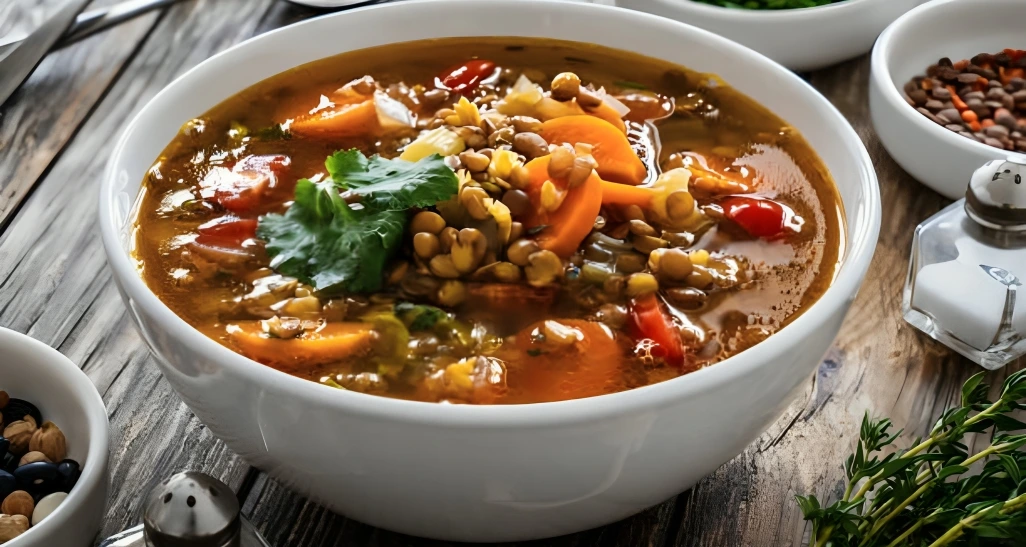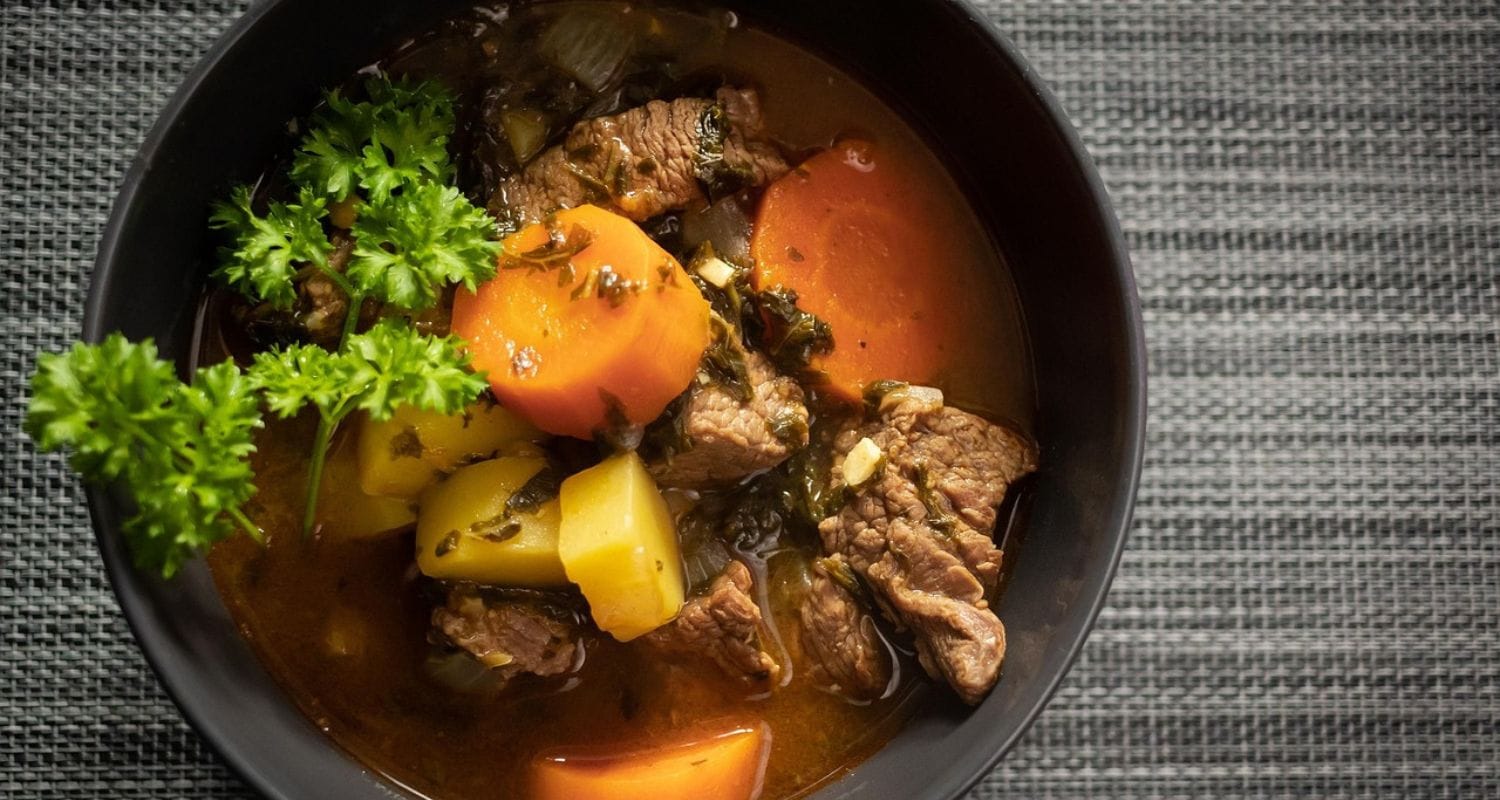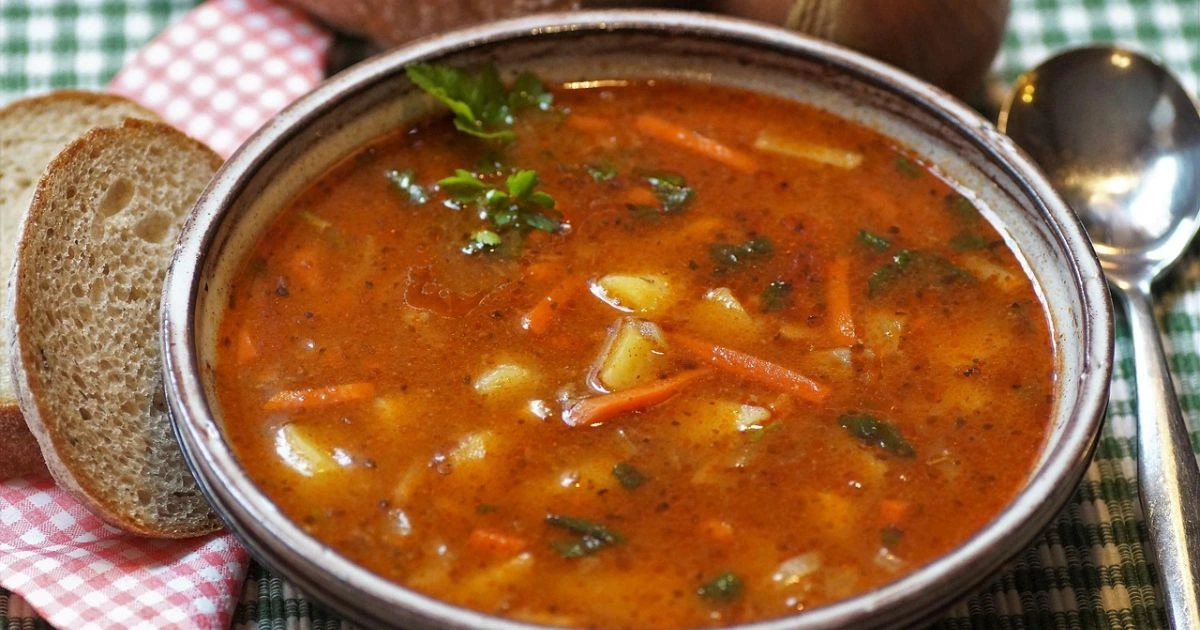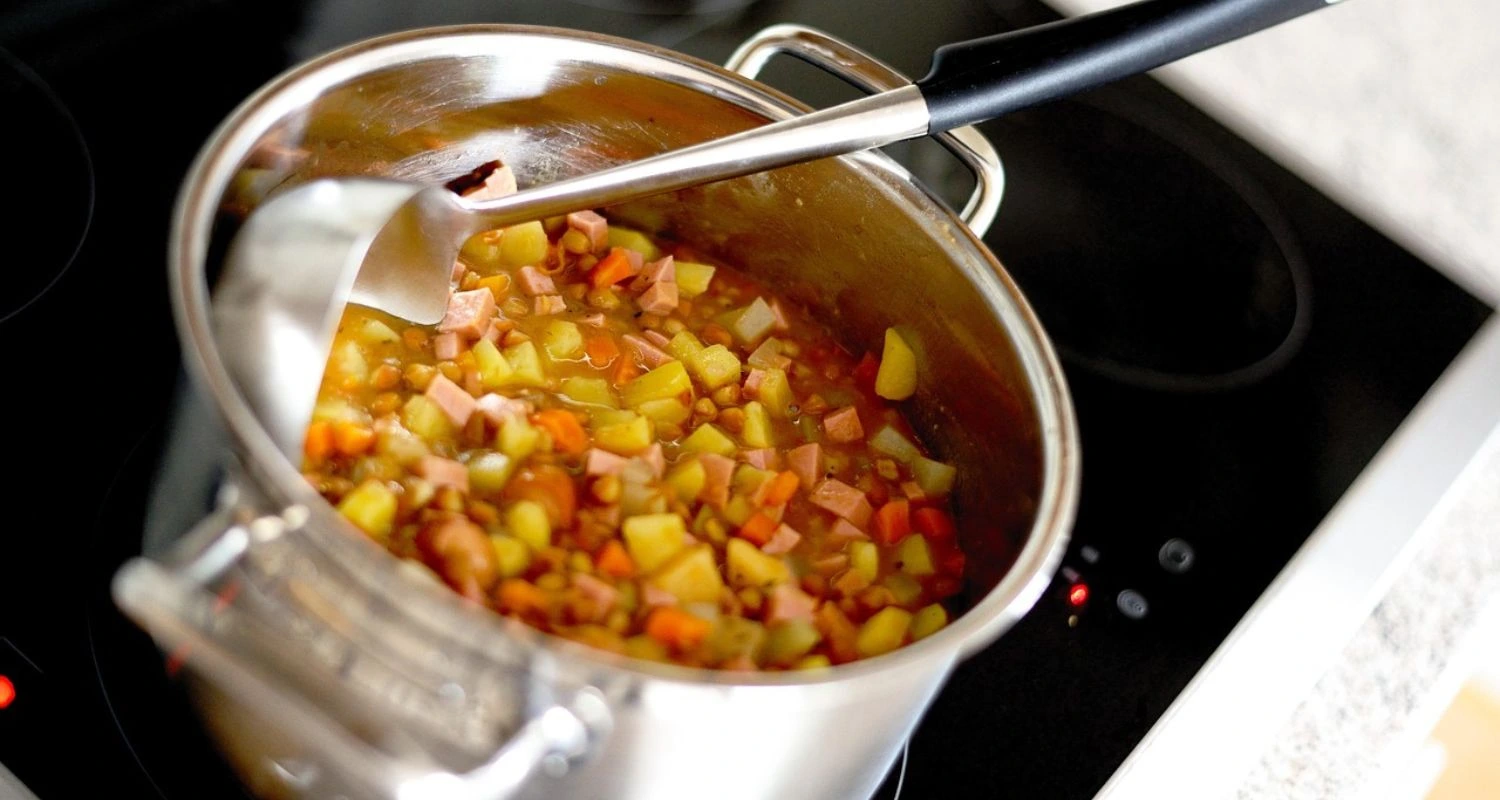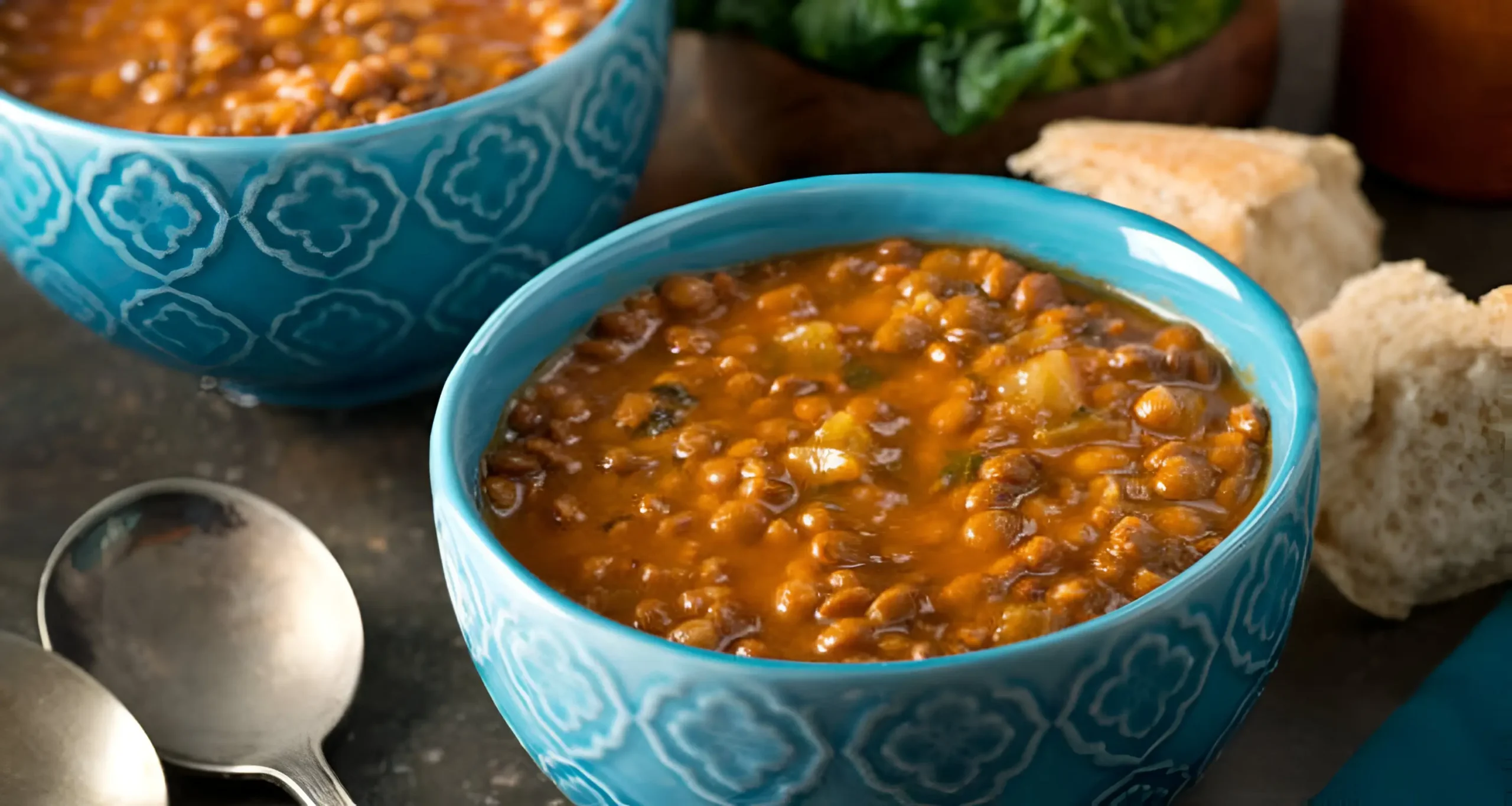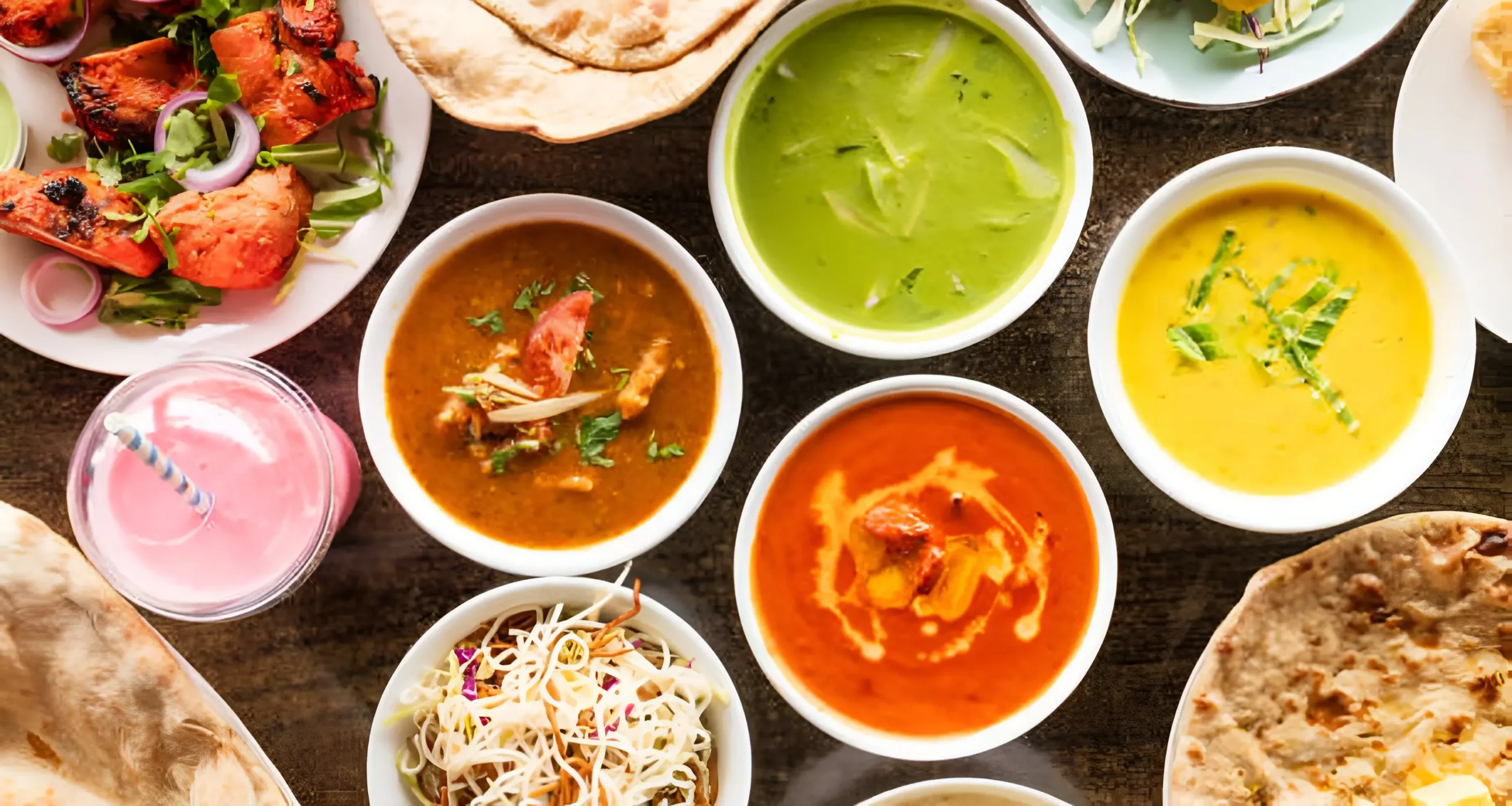7 Secret Ingredients for the Best Swamp Soup Recipe
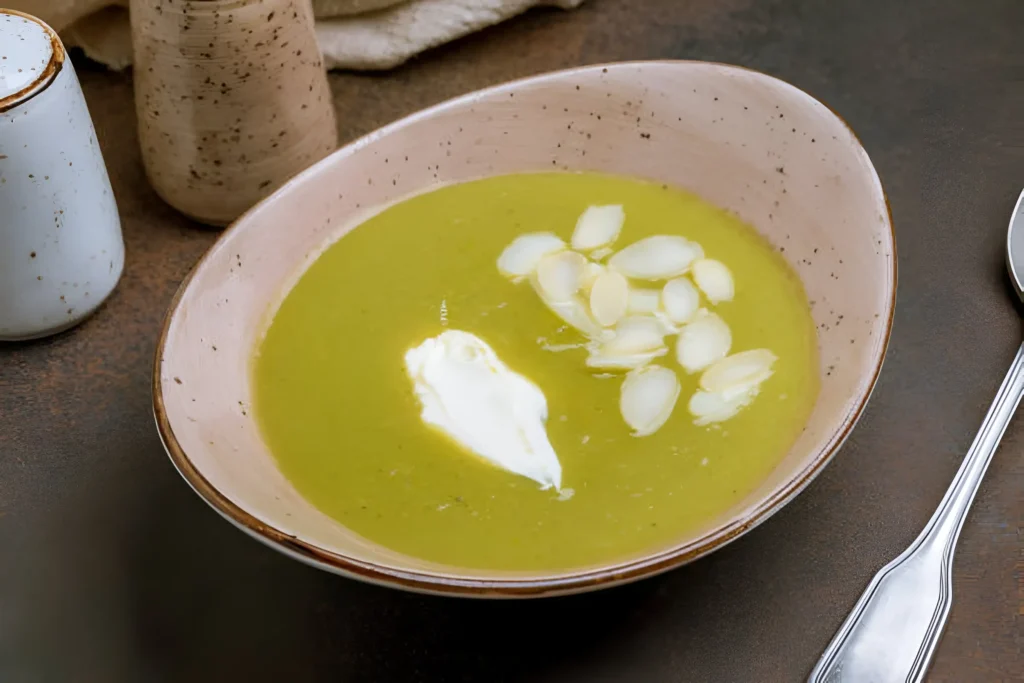
Ready to make your swamp soup recipe unforgettable? This article reveals secret ingredients to take your swamp soup to the next level. Whether you’re an experienced chef or just starting out, you’ll find unique elements to boost flavors. Get ready to wow your family and friends with the best swamp soup they’ve ever had!
Key Takeaways
- Discover unique secret ingredients that enhance swamp soup flavor.
- Learn tips for selecting components for your swamp soup recipe.
- Understand how to improve taste with fresh and local ingredients.
- Explore different textures and flavors to make the best Swamp Soup Recipe.
- Get ready to impress with innovative and delicious recipes.
Introduction to Swamp Soup
Swamp Soup Recipe is a mix of flavors that shows the heart of Southern cooking. It’s known for being hearty and rustic. What is swamp soup? It’s a dish with greens, proteins, and a tasty broth, made with local ingredients.
This soup is more than just food; it brings families and friends together. It’s a symbol of community and shared moments.
The origins of Swamp Soup Recipe come from Southern traditions. Home cooks made soups with what they had, creating delicious meals. These dishes show a strong bond with the land and its gifts.
The swamp soup history is filled with stories of community and togetherness. It’s about the joy of sharing meals with loved ones.
What Makes a Great Swamp Soup Recipe?
A fantastic Swamp Soup Recipe starts with its base ingredients. The ingredients you pick shape the flavor and enjoyment of your dish. Knowing the key ingredients helps you make a memorable meal.
Understanding the Base Ingredients
The base of Swamp Soup Recipe includes greens, proteins, and a rich broth. Using local greens like collards or mustard greens adds depth. You can also add chicken, sausage, or beans for protein.
The broth, made from scratch, brings everything together. It provides a comforting base for the soup.
The Importance of Freshness
Using fresh ingredients is key for vibrant flavors in swamp soup. Fresh produce enhances taste and nutrition. Visit your local farmer’s market for seasonal veggies.
Choosing organic ingredients adds quality. This ensures your Swamp Soup Recipe not only tastes great but also feels good.
Secret Ingredient #1: Unique Greens
Swamp Soup Recipe gets a boost from unique greens. Turnip greens stand out for their vibrant taste and health benefits. They add a peppery flavor and bring nutrients that make the dish special.
Why Turnip Greens Are a Game-Changer
Turnip greens are full of vitamins A, C, and K, and minerals like calcium and iron. Their bold taste makes swamp soup even better. They add a peppery kick and bring important health benefits to your meal.
Alternative Greens You Can Use
Looking for other greens? Try collard greens and mustard greens. They each bring unique flavors and textures to Swamp Soup Recipe:
- Collard Greens: Mild and earthy, they add a hearty touch to soups.
- Mustard Greens: Spicy and tangy, they add a fun twist to your dish.
Trying different greens can make your swamp soup even more exciting. You can tailor the flavor to your liking.
Secret Ingredient #2: Hearty Proteins
Choosing the right proteins for your Swamp Soup Recipe can make a big difference. You can pick from meat or vegetarian options. This guide will help you find the perfect protein for a delicious bowl of soup.
Choosing the Right Meat
For meat, chicken, sausage, and turkey are top choices. Each adds its own flavor to the soup. Chicken is great because it soaks up flavors well. Sausage adds a spicy kick for those who like bold tastes. Turkey is lighter but just as satisfying.
| Type of Meat | Flavor Profile | Cooking Time |
|---|---|---|
| Chicken | Versatile and mild | 20-30 minutes |
| Sausage | Spicy and robust | 15-25 minutes |
| Turkey | Light and slightly gamey | 25-35 minutes |
Vegetarian Options for Your Swamp Soup
For a vegetarian soup, try beans, lentils, or tofu. Beans are filling and full of nutrients. Lentils are quick to cook and creamy. Tofu absorbs flavors, adding depth to your soup.
Adding these proteins makes sure everyone can enjoy a tasty meal. Whether you choose meat or plant-based options, your soup will be a hit with everyone.
Secret Ingredient #3: Flavorful Broth
A rich and delicious broth is key to a great swamp soup. The type of broth you choose can really change the taste. You can use chicken or vegetable broth, each bringing its own flavor.
When you make broth at home, you can tailor the flavors to your liking. Use top-notch ingredients and slow-cook them to get the most flavor. This method not only boosts the taste but also adds nutrients to your broth.
Adding fresh herbs, spices, and vegetables while simmering can make your broth even better. This is perfect for swamp soup.
If you’re in a hurry, store-bought broth is a good option. Many brands offer rich and tasty broths. Just check the labels to avoid additives or preservatives that might ruin the flavor.
Whether you make your own broth or buy it, the right choice is essential for amazing swamp soup. With the right techniques, making soup can be both fun and delicious.
Secret Ingredient #4: Spices and Herbs
Turning your Swamp Soup Recipe into a masterpiece is all about the spices and herbs. The right mix not only boosts flavor but also adds depth. This makes your dish truly special.
Herbs That Elevate Your Recipe
Herbs can add exciting flavors to your Swamp Soup Recipe. Here are some top picks:
- Thyme: It brings earthiness and a hint of mint.
- Bay Leaves: They add a rich aroma that pairs well with broths.
- Parsley: It adds a fresh touch, perfect for garnish.
These herbs not only improve taste but also let you match your recipe to the season.
Spices for the Perfect Kick
Spices can also take your Swamp Soup Recipe to the next level. Here are some great options:
- Cayenne Pepper: It adds a spicy kick for those who like it hot.
- Cumin: It brings a warm, nutty taste that adds complexity.
- Black Pepper: It’s a classic seasoning that balances out the flavors.
Using these spices lets you craft a unique flavor. Try different mixes to find your favorite, making meals that will impress anyone.
Secret Ingredient #5: Aromatics
Aromatics are key to making Swamp Soup Recipe rich and inviting. Onions and garlic add depth and a comforting feel. They are essential in many kitchens, showing their importance in this recipe.
The Role of Onions and Garlic
Onions and garlic do more than just taste good. They are the base for flavor in Swamp Soup Recipe. Sautéing them releases oils that make the soup smell warm and inviting.
They also add nutrients, making the soup healthier. The sweetness of onions and the strong taste of garlic blend well. This mix makes the soup taste better.
To get the most from these ingredients, try these tips:
- Chop onions and garlic finely to release more flavor.
- Cook them in butter and olive oil for a richer taste.
- Cook them until they’re translucent. This caramelizes their sugars, sweetening the soup.
By focusing on how you prepare onions and garlic, you unlock their full flavor. This makes your swamp soup a hit and a memorable meal.
Secret Ingredient #6: Acid for Balance
Adding acidity in soup can elevate your Swamp Soup Recipe. The right amount of acidity creates contrast, boosting the flavor. It brightens the taste, making each bite more enjoyable.
Using Citrus to Brighten the Dish
Using citrus in swamp soup is a great way to add brightness. Fresh lemon or lime juice adds a zesty flavor. It enhances other ingredients and balances the broth’s richness.
Try adding a squeeze of lemon just before serving. It adds a refreshing touch.
Vinegars You Can Incorporate
Vinegars are also great for adding acidity. You can use apple cider vinegar, red wine vinegar, or balsamic vinegar. Each vinegar adds a unique flavor, deepening the soup.
You can add a splash during cooking or a dash at the end. This lets you fine-tune the taste.
Secret Ingredient #7: Unexpected Add-ins
Adding unexpected ingredients to your Swamp Soup Recipe can make it stand out. These unique elements bring new textures and tastes. They surprise your guests and add a personal touch to the dish.
Exploring the World of Add-ins
Chefs and home cooks are finding new ways to make Swamp Soup Recipe exciting. Try adding smoked sausage, corn, or pickled jalapeños. These ingredients add depth and make the soup unforgettable.
When making your Swamp Soup Recipe, think about adding:
- Beans for extra protein and fiber
- Seasonal veggies for freshness
- Cheddar cheese for creaminess
- Pesto for a unique flavor
Fish River Grill’s Approach to Swamp Soup
The Fish River Grill’s swamp soup recipe is all about creativity. They use seafood like fish, shrimp, or crab. This gives the soup a coastal twist.
This shows how Swamp Soup Recipe can be versatile. Mixing classic ingredients with new ones makes for a great meal.
How to Combine Ingredients for Maximum Flavor
When making swamp soup, it’s key to think about how you mix ingredients. Start with the base ingredients first. Choose fresh veggies and proteins for the best taste. Adding onions and garlic early helps bring out more flavor.
Simmering the soup can make it even more complex. Adding ingredients at the right time is important. This way, each flavor can shine without getting lost. For example, add greens late to keep their color and nutrients.
Here’s a table to help you mix ingredients well:
| Ingredient Type | Timing | Flavor Benefit |
|---|---|---|
| Aromatics (Onions, Garlic) | Start | Enhances overall depth |
| Proteins (Meat, Beans) | Middle | Improves heartiness and texture |
| Greens | End | Packs nutrients and brightens flavor |
Learning to mix ingredients well in swamp soup can be a game-changer. With these tips, you’ll make a dish that’s both tasty and healthy.
Tips for Perfecting Your Swamp Soup Recipe
Getting your swamp soup just right takes precision and creativity. Timing is key, affecting both taste and texture. With a few swamp soup cooking tips, you can make a dish that wows everyone.
Timing and Cooking Techniques
Getting the flavors right in swamp soup is all about timing. Start by sautéing your aromatics to build flavor. Then, add the broth and other ingredients.
Make sure to add heartier items like beans and grains early. Delicate greens or proteins go in later to keep their texture. Simmer for at least an hour, adjusting time based on your ingredients.
Adjusting for Personal Taste
Customizing your swamp soup is essential. Use cooking tips to tweak the seasoning to your liking. Add fresh herbs or spices slowly, tasting as you go.
For a deeper flavor, try adding vinegar for acidity or hot sauce for spice. Keep track of what you like best so you can make it again.
| Ingredient Type | When to Add | Notes |
|---|---|---|
| Aromatics (Onions, Garlic) | Start cooking | Enhances base flavor |
| Hearty Proteins (Meat) | Early in the process | Needs longer cooking time |
| Vegetables (Root Veggies) | Midway through | Adds texture and nutrition |
| Leafy Greens | Last 10-15 minutes | Preserves freshness |
| Acid (Vinegar, Citrus) | At the end | Brightens flavors |
Serving Suggestions

When you serve swamp soup, think about pairing and presentation. The right side dishes can make the meal better. Creative ways to present the soup can make it look great. These tips will help you impress your guests and make the meal more enjoyable.
Best Side Dishes to Pair
Choosing side dishes for swamp soup is key. You want flavors that match the soup’s bold taste. Here are some top picks:
- Cornbread: A classic choice that adds sweetness and texture.
- Fried Green Tomatoes: Their crunch and tartness balance the soup’s richness.
- Coleslaw: A refreshing side that contrasts with the soup’s warmth.
- Garlic Bread: Great for dipping and soaking up the broth.
Presentation Tips for Your Soup
Good presentation can turn a simple soup into a showstopper. Here are some tips for a stunning presentation:
- Garnish Wisely: Use fresh herbs like parsley or cilantro for color and freshness.
- Serve in Unique Bowls: Rustic, handmade bowls add an authentic touch.
- Add Color: Colorful side dishes make the table inviting.
- Mind the Temperature: Serve the soup hot to enhance aroma and taste.
Health Benefits of Swamp Soup Ingredients
Swamp soup ingredients are packed with health benefits. They offer a delicious mix of flavors and nutrients. A healthy swamp soup recipe not only tastes great but also boosts your well-being.
Nutritional Breakdown of Key Ingredients
Greens are key in swamp soup, providing vitamins A, C, and K. They also offer minerals like calcium and iron. Proteins like beans or meats add amino acids for muscle health. Here’s a closer look at the health benefits of swamp soup’s main ingredients:
| Ingredient | Health Benefits | Nutritional Value (per serving) |
|---|---|---|
| Turnip Greens | Rich in vitamins and antioxidants | Calories: 50, Protein: 5g, Fiber: 3g |
| Chicken | High in protein and low in fat | Calories: 200, Protein: 30g, Fat: 10g |
| White Beans | Great source of protein and fiber | Calories: 120, Protein: 8g, Fiber: 6g |
How to Make It Healthier
Making your swamp soup healthier is easy. Use low-sodium broth to cut down on salt. Choose lean meats or add more veggies for more fiber. Try new ingredients to boost nutrition without losing flavor. Adding seasonal veggies brings more vitamins and makes your meal more balanced.
Variations on the Traditional Swamp Soup Recipe
Swamp soup is incredibly versatile, with many different versions. Each region adds its own twist, using local ingredients and cultural flavors. This makes every swamp soup recipe unique, allowing fans to try new tastes while keeping the dish’s comforting essence.
Exploring Regional Twists
Different areas have their own swamp soup styles. In the South, it’s often spicy with various meats. The Northeast, on the other hand, prefers lighter broths with fresh seafood. You might find:
- Louisiana-style with Andouille sausage and Cajun spices.
- Florida versions with fresh Gulf seafood.
- Pacific Northwest recipes using wild mushrooms and local greens.
Creative Takes on Classic Flavors
Want to make your own swamp soup? Try adding unexpected ingredients. You could add smoked meats for depth or gourmet veggies for a twist. Some ideas include:
- Adding sweet potatoes for a sweet touch.
- Using coconut milk for creaminess.
- Adding craft beers or wine for a richer taste.
Storing and Reheating Swamp Soup
Storing and reheating swamp soup right can make its flavors last for days. Keeping it fresh not only saves its taste but also keeps it safe to eat. Just follow a few simple steps to keep your leftovers tasty and fresh for later.
How to Properly Store Your Soup
To store swamp soup well, cool it down to room temperature first. Then, put it in an airtight container. Here are some important tips:
- Choose glass or BPA-free plastic containers for safe storage.
- Split big batches into smaller parts for easier use.
- Mark containers with the storage date for easy tracking.
- Put it in the fridge if you’ll eat it in a few days. Freeze it for longer storage.
Reheating Tips for Best Flavor
When reheating swamp soup, aim to boost its flavors, not lose them. Here’s how:
- Thaw frozen soup in the fridge for hours or overnight before heating.
- Warm it on the stovetop on low to medium heat, stirring often to avoid sticking.
- For microwaving, cover the container lightly to let steam out while reheating in short bursts.
- Add a bit of broth or fresh herbs just before serving to enhance flavors.
Swamp Soup Recipe Pioneer Woman Style

The pioneer woman swamp soup is a true comfort food. It’s filled with rustic flavors and wholesome ingredients. This dish shows the pioneer woman’s simple cooking style, using easy-to-find ingredients.
To make this soup, start with a strong broth. Use chicken or vegetable stock to add flavor. Then, add unique greens like collards, kale, or turnip greens for different tastes.
Proteins are key to making this soup satisfying. Try shredded chicken or diced sausage for richness. For a veggie option, add beans or lentils to make it a nourishing meal.
Season your soup with herbs and spices. Thyme, bay leaves, and a little cayenne pepper add flavor and excitement. These ingredients make the dish even more special.
Feel free to put your own spin on your swamp soup—adjust it to meet your taste preferences or dietary requirements, and pair it with crusty bread for a comforting meal that truly warms you up.
Conclusion
As we finish our journey into swamp soup, let’s recap the key points. The secret ingredients make a simple dish unforgettable. Adding unique greens, hearty proteins, and a rich broth boosts flavor and connection with loved ones.
Using the best swamp soup tips can open up new flavors and textures. Feel free to try different spices, herbs, and add-ins. Each change makes your swamp soup special and yours alone.
Remember, your swamp soup journey should be full of exploration and adaptation. With what you’ve learned, you can make your own version of this classic dish. The best swamp soup warms your table and creates lasting memories with family and friends. Enjoy the process and let your creativity shine.
FAQ
What is swamp soup?
Swamp soup is a hearty dish from the South. It’s made with greens, proteins, and a tasty broth. It shows the local ingredients used in cooking.
How do you make a swamp soup recipe using turnip greens?
Start by sautéing onions and garlic. Then add fresh turnip greens and your protein choice. Simmer in a flavorful broth. Spices and herbs make it even better.
What proteins work best in a swamp soup recipe?
Chicken, turkey, and sausage are top picks for proteins. For a veggie option, beans or lentils are great. They make the soup hearty.
Can I use store-bought broth for my swamp soup?
Yes, store-bought broth is easy. But homemade broth from veggies or bones adds more flavor.
What spices and herbs should I include in my swamp soup?
Thyme and bay leaves are key herbs. Cayenne pepper adds a spicy kick. Choose spices based on your taste.
Are there any health benefits to eating swamp soup?
Swamp soup is full of greens and proteins. It’s packed with vitamins, minerals, and fiber. It’s good for your health.
How do I store and reheat my swamp soup?
Store it in a sealed container in your refrigerator, and it will stay fresh for as long as three days. Reheat on the stove over low heat. This keeps the flavor and texture.
What are some variations of a traditional swamp soup recipe?
Different places have their own swamp soup twists. They use local greens and proteins. You can also try new spices and flavors.
How does Fish River Grill put its own spin on swamp soup?
Fish River Grill makes swamp soup special. They use bold flavors and unique ingredients. It’s a favorite among diners.
Can I modify the swamp soup recipe to make it healthier?
Yes! Use less meat or leaner cuts. Add more veggies and choose low-sodium broth. This makes it healthier without losing flavor.
Add a Dash of Your Thoughts!
There are no reviews yet. Be the first one to write one.

